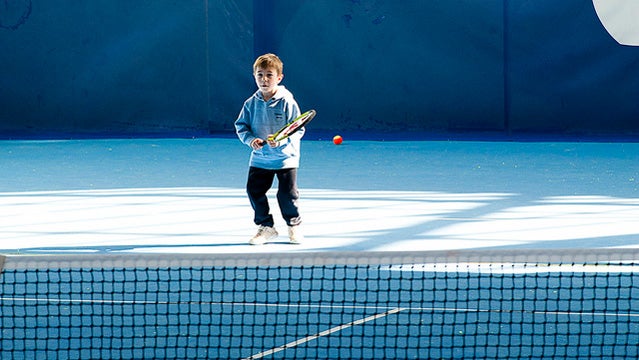ABSTRACT: Lindsey Vonn was skiing by her second birthday, Michael Phelps was in the pool at age seven and under the wings of Bob Bowman by 10, and Wayne Gretzky was skating with 10-year-olds—when he was six. While child prodigies are, by definition, the exception to the norm, they help set public perception. Want to raise the next Vonn? Make sure your daughter’s skiing before she can walk. Heck, don’t even let her walk. But as more and more kids get their starts earlier and earlier, we have to ask: Does specializing in a sport at a young age make your kids any better, and what does it do to their health?
HYPOTHESIS: Specialize from a young age if you want to succeed, but prepare to pay the price in injuries and burnout.
METHODS: An article in the journal reviewed the most pressing questions facing young athletes and their parents: Do children who specialize at a young age perform better than their peers down the road and do they suffer more injuries?
Researchers combed through articles from 1990 to 2011 looking for answers, and they also tapped into a recent study conducted by the article’s lead author, Dr. Neeri Jayanthi, the medical director of primary care sports medicine at Loyola University Chicago, that examined injury rates in 519 tennis players ages 10-18 who spent, on average, 11-15 hours a week training.
RESULTS: The kids who specialized in tennis were 1.5 times more likely to report an injury, regardless of their total—think: all activities included—training time. When it came to performance, several studies showed that in sports like cycling, swimming, and skating, those who started training intensely around age 15 were more likely to become elite-level athletes (defined by podium placings in European competitions and top-10 results in World and Olympic events) than their peers who started training earlier.
DISCUSSION: The game is changing, and it might not be for the best. Increasingly in recent years, youth sports have evolved from “child-driven, recreation free play for enjoyment to adult-driven, highly structured, deliberate practice devoted to sports-specific skill development,” reads Jayanthi’s review. While parents make the initial push by introducing their kids to a variety of activities, coaches encourage young children to specialize—to train year-round in a single sport to the exclusion of others.
The problem: Settling in on a single sport before age 15 won’t always to lead to long-term success, Jayanthi says. The contradictory example of Tiger Woods might be first to come to mind, but “if we look at all these athletes as a group, it’s an uncommon thing to get to the top level by only doing one sport early on,” he says. Overall, children who specialize at a young age have higher rates of burnout, peak sooner, and perform inconsistently compared to those who wait. Diversifying, then, with some exceptions, is the safer bet.
While sports like gymnastics require peak performance before maturation and hence specialization, endurance events are a whole different question, Jayanthi says. “You can make a late decision about being an endurance athlete and still be successful.” Just look at pro cyclist Evelyn Stevens (who began racing after a career on Wall Street) if you need any convincing.
, that might still be hard to swallow, examples included. But winning a running race isn’t the same as playing a violin, and studies show that elite athletes train less than their peers until around age 15—at which point the roles flip, and they begin to outpace their near-elite peers. What’s behind the change? As Ross Tucker, Ph.D., points out at the , there are likely two components at play: .
Some children train more than others because of their parents or in response to their own success, while others are late bloomers or just don’t need the extra volume to succeed. But around age 15, something becomes clear: their potential, and athletes who can reach the stars train like mad, while those who are earthbound level off.
With that in mind, top experts in exercise physiology from the , to Jayanthi and his peers recommend you expose your kids to a variety of sports at a young age. And it’s not just about athletic success—but for their health. Researchers believe that specialization—at least in tennis—may increase your risk of injury, regardless of your total training volume, Jayanthi says. That’s because young bodies have a hard time dealing with the repeated stresses of specialized training. “It’s not just an hours a week thing, but how you’re spending your time,” he says. “High hours a week will of course be a risk factor for the development of injuries, but to augment that, how you spend those hours a week is an important factor and might possibly even be a bigger factor.”
CONCLUSION: Introduce your kids to a wide range of sports at an early age, but don’t worry about specialization before age 14 for girls and 16 for boys.


